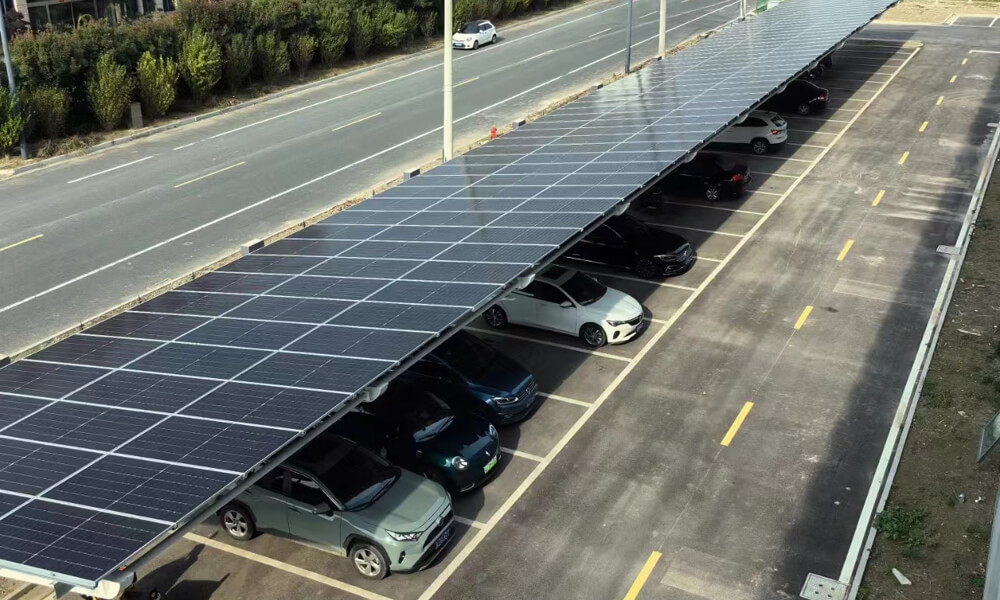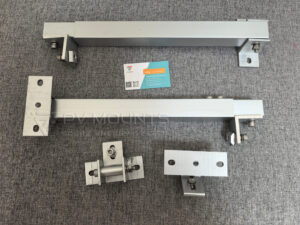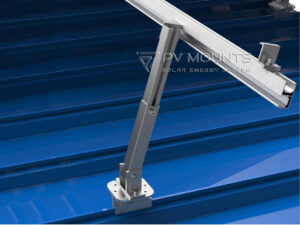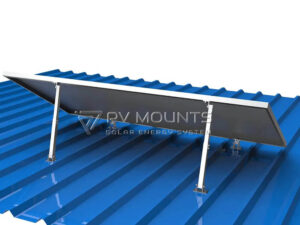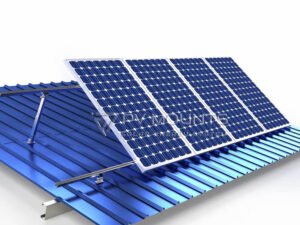Abris solaires pour voituresCes structures, qui sont un amalgame innovant d'énergie renouvelable et de praticité, ouvrent la voie au développement durable. Ces structures, principalement conçues pour exploiter l'énergie solaire à des fins de production d'électricité, fournissent non seulement de l'ombre, mais servent également de source d'énergie pour les locaux résidentiels et commerciaux. À une époque où le passage aux sources d'énergie renouvelables est primordial, les abris de voiture solaires apparaissent comme un élément essentiel des solutions énergétiques modernes.
Comprendre les abris solaires
Un carport solaire est une structure dont le toit est constitué de panneaux photovoltaïques (PV). Les installations solaires protègent les véhicules et produisent de l'électricité en convertissant la lumière du soleil. Les composants essentiels d'un carport solaire comprennent des panneaux photovoltaïques, des onduleurs et parfois des batteries pour le stockage de l'énergie. Cette solution ingénieuse permet de capter l'énergie solaire et de la transformer en énergie utilisable, tout en minimisant l'empreinte carbone.
Table des matières
Avantages des abris de voiture solaires
Avantages pour l'environnement
Les abris de voiture solaires sont à la pointe des solutions énergétiques respectueuses de l'environnement. En exploitant la puissance inépuisable du soleil, ces structures réduisent considérablement la dépendance à l'égard des combustibles fossiles et atténuent ainsi les émissions de gaz à effet de serre. Cette transition vers l'énergie solaire contribue profondément à la lutte contre le changement climatique et à la promotion de la durabilité environnementale.
Avantages financiers
Outre leurs avantages environnementaux, les abris de voiture solaires offrent des avantages financiers considérables. Ils permettent de réduire les factures d'électricité grâce à la production d'énergie renouvelable sur place. En outre, de nombreux gouvernements proposent des mesures d'incitation pour les installations d'énergie solaire, notamment des crédits d'impôt et des remises, ce qui fait des abris pour voitures solaires un investissement intéressant.
Abris solaires résidentiels : Améliorer les maisons grâce à l'énergie verte
Caractéristiques principales
Les abris solaires résidentiels sont conçus pour s'intégrer parfaitement à l'esthétique unique des maisons individuelles tout en optimisant l'exploitation de l'énergie solaire. Bien que plus compactes que leurs variantes commerciales, ces structures ne compromettent pas l'efficacité, offrant une solution puissante de production d'énergie à domicile. Leur conception donne la priorité à l'adaptabilité, garantissant que chaque abri de voiture n'est pas simplement un ajout à la maison, mais une amélioration de son caractère et de sa fonctionnalité d'ensemble.
Processus d'installation
L'installation d'un abri solaire résidentiel commence par une évaluation approfondie du site. Cette phase critique permet d'évaluer l'espace disponible et le potentiel d'accès à l'énergie solaire, jetant ainsi les bases d'une conception qui répond aux besoins énergétiques spécifiques de la maison. Les installateurs professionnels jouent un rôle crucial dans la conception d'une structure qui s'adapte non seulement au paysage physique, mais qui s'aligne également sur les systèmes électriques de la maison pour une production et une utilisation optimales de l'énergie. Ce processus garantit que l'abri de voiture solaire s'intègre parfaitement à la résidence, tant sur le plan esthétique que fonctionnel.
Avantages et considérations
L'adoption d'un abri de voiture solaire résidentiel présente de nombreux avantages, dont les principaux sont la réduction des coûts énergétiques et l'augmentation notable de la valeur de la propriété. Ces avantages constituent une proposition attrayante pour les propriétaires, qui bénéficient d'un retour sur investissement tangible grâce aux économies réalisées sur les factures d'électricité et au potentiel d'augmentation de la valeur marchande. Toutefois, il est essentiel de mettre ces avantages en balance avec des considérations initiales telles que le coût de l'investissement et la nécessité de s'y retrouver dans les réglementations locales. Il est essentiel de comprendre ces facteurs pour prendre une décision éclairée et s'assurer que l'installation d'un abri de voiture solaire est un ajout à la fois pratique et bénéfique à la maison.
Les abris solaires résidentiels représentent un choix intelligent et durable pour les propriétaires qui souhaitent investir dans les énergies renouvelables. En combinant l'adaptabilité esthétique et la production efficace d'énergie, ces structures offrent le double avantage de la réduction des coûts et de l'augmentation de la valeur de la propriété. Bien que des considérations initiales doivent être prises en compte, les avantages à long terme de l'installation d'un carport solaire en font un ajout intéressant à toute maison, ouvrant la voie à un avenir plus vert et plus efficace sur le plan énergétique.
Abris solaires commerciaux : Révolutionner la durabilité des entreprises
Échelle et champ d'application
Les abris solaires commerciaux sont des installations transformatrices à grande échelle qui répondent aux besoins énergétiques considérables des entreprises et des institutions publiques. Conçues pour exploiter l'énergie solaire, ces installations ne se contentent pas d'offrir de l'ombre aux véhicules stationnés ; ce sont des centrales électriques robustes capables de produire une grande quantité d'électricité. Cette capacité leur permet de contribuer de manière significative aux besoins énergétiques opérationnels des entreprises, en mettant en avant un mélange d'utilité, d'innovation et de gestion de l'environnement.
Incitations économiques
Le paysage économique des entreprises qui adoptent des abris de voiture solaires est riche en incitations. Au-delà de la réduction tangible des coûts d'exploitation liée à la production d'électricité, les entreprises bénéficient également d'une meilleure image de marque. L'attrait financier est encore renforcé par l'éligibilité aux crédits d'impôts verts, aux avantages liés à l'amortissement et parfois même aux subventions directes ou aux remises. L'ensemble de ces incitations économiques fait des abris solaires pour voitures non pas une simple dépense, mais un investissement stratégique dans une perspective de durabilité et de rentabilité à long terme.
Impact sur l'image de l'entreprise
À une époque où la conscience environnementale joue un rôle important dans les choix des consommateurs, l'adoption d'abris de voiture solaires témoigne de l'engagement d'une entreprise en faveur du développement durable. Cette démarche va au-delà de la simple conformité aux normes environnementales et reflète une position proactive en matière de responsabilité écologique. L'intégration d'abris solaires dans l'infrastructure d'une entreprise augmente considérablement la valeur de sa marque, en la distinguant comme une entité avant-gardiste et respectueuse de l'environnement. Un tel engagement trouve invariablement un écho positif auprès des consommateurs, des clients et des parties prenantes, en favorisant une image verte qui s'aligne sur les valeurs d'un marché soucieux de l'environnement.
Les abris solaires commerciaux représentent un lien stratégique entre la gestion de l'environnement et le sens des affaires. Grâce à leur échelle et à leur portée, aux incitations économiques et à l'impact positif sur l'image de l'entreprise, ces installations soulignent l'engagement d'une société en faveur du développement durable. Les abris solaires pour voitures jouent un rôle de plus en plus important dans les efforts déployés par les entreprises pour adopter des solutions écologiques. Ils constituent un moyen pratique de contribuer à un avenir durable tout en offrant des avantages économiques significatifs.
Analyse comparative : Abris solaires commerciaux et résidentiels
Différences de taille et de capacité
La distinction entre les abris solaires commerciaux et résidentiels dépend principalement de leur taille et de leur capacité de production d'énergie. Les abris solaires pour entreprises et institutions sont construits à grande échelle pour répondre à leurs besoins énergétiques. Ces installations sont conçues pour produire une quantité importante d'électricité et répondre aux besoins opérationnels des entités commerciales. Les abris solaires résidentiels sont conçus pour les maisons individuelles, afin de répondre à la consommation quotidienne d'énergie d'un ménage. Les carports résidentiels répondent efficacement aux besoins énergétiques d'une maison. La taille ne compromet pas l'efficacité.
Analyse coûts-bénéfices
Investir dans des abris solaires pour voitures, que ce soit à des fins commerciales ou résidentielles, implique un investissement initial considérable. Toutefois, la justification économique d'un tel investissement devient évidente lorsque l'on considère les avantages à long terme. Pour les deux secteurs, les abris solaires permettent de réaliser des économies substantielles sur les dépenses énergétiques au fil du temps. Les carports solaires offrent la possibilité de générer des revenus grâce à la vente de l'énergie excédentaire et aux crédits d'énergie renouvelable. Les carports solaires offrent un fort retour sur investissement pour les acteurs résidentiels et commerciaux, ce qui les rend économiquement viables pour diverses applications.
Personnalisation et flexibilité
Les abris solaires sont des solutions adaptables et personnalisables qui répondent à des besoins énergétiques spécifiques et à des contraintes architecturales. Les carports peuvent être personnalisés pour un usage commercial ou résidentiel en fonction de leur conception, de leur taille et de leur capacité. Toutefois, les installations commerciales exigent généralement un degré plus élevé de personnalisation et de flexibilité. Les besoins énergétiques des entreprises nécessitent des solutions de conception innovantes pour accueillir des systèmes énergétiques de grande envergure. Les carports solaires sont flexibles et peuvent aider les utilisateurs commerciaux et résidentiels à maximiser leur potentiel d'énergie solaire.
Défis et solutions
Se lancer dans l'exploitation de la puissance du soleil par le biais d'abris de voiture solaires comporte son lot de défis. Comme tout chemin qui mérite d'être parcouru, des obstacles se dressent, chacun exigeant un mélange unique d'ingéniosité et de persévérance pour être surmonté. Découvrez les défis liés à l'adoption des abris de voiture solaires et les solutions innovantes pour un avenir alimenté par l'énergie solaire.
Obstacles courants
- Obstacles réglementaires : Naviguer dans le labyrinthe des codes de construction locaux et des lois de zonage peut ressembler à une odyssée en soi. Chaque juridiction a son propre ensemble de règles, ce qui crée souvent un puzzle complexe pour les propriétaires et les entreprises.
- Coûts initiaux : L'investissement initial requis pour l'installation d'un abri de voiture solaire peut être décourageant. Pour beaucoup, le prix constitue un obstacle important, qui éclipse les économies à long terme et les avantages pour l'environnement.
- Exigences en matière d'espace : Seules certaines propriétés ont la chance de disposer d'un espace suffisant pour accueillir un abri solaire pour voiture. Les zones urbaines, en particulier, présentent un défi unique, où chaque mètre carré est précieux.
Solutions technologiques et réglementaires
L'industrie solaire et les organismes de réglementation collaborent pour surmonter les difficultés et promouvoir les abris pour voitures solaires. Ils ont mis au point des solutions pour surmonter les obstacles et favoriser l'adoption des abris solaires pour voitures.
Innovations dans la technologie photovoltaïque : Les panneaux solaires d'aujourd'hui ressemblent peu à leurs prédécesseurs. Chaque année, les progrès de la technologie photovoltaïque augmentent l'efficacité, réduisent les coûts et élargissent le potentiel de production d'énergie solaire. Ces améliorations font des abris de voiture solaires des options plus viables et financièrement plus intéressantes pour un plus grand nombre d'applications.
Percées dans le domaine du stockage des batteries : L'avènement de solutions de stockage par batterie plus abordables et plus efficaces a révolutionné l'industrie solaire. Ces technologies permettent de stocker l'énergie solaire excédentaire afin d'assurer un approvisionnement régulier, même en l'absence de lumière solaire. Cette évolution est particulièrement cruciale pour les entités commerciales dont les activités s'étendent au-delà des heures de clarté.
Politiques gouvernementales favorables : Les gouvernements du monde entier encouragent l'adoption de la technologie solaire pour lutter contre le changement climatique. Les carports solaires sont de plus en plus accessibles aux clients grâce à des incitations fiscales, des remises et des processus d'autorisation simplifiés.
Collaboration et éducation : Les groupes industriels et les défenseurs de l'énergie solaire s'efforcent de démystifier le processus de passage à l'énergie solaire. Ils simplifient les voies réglementaires et informent le public sur les abris de voiture solaires.
Aller de l'avant
Le chemin vers l'adoption généralisée des abris de voiture solaires est pavé de défis, mais il est possible. Grâce à l'innovation technologique, à des politiques de soutien et à un engagement collectif en faveur des énergies renouvelables, les obstacles à l'installation d'abris de voiture solaires sont régulièrement démantelés. En continuant à repousser les limites du possible, la vision d'un monde alimenté par le soleil devient de plus en plus accessible. Avec chaque abri de voiture solaire érigé, nous faisons un pas de plus vers un avenir durable, prouvant que là où il y a de la volonté - et un peu de lumière - il y a un chemin.
L'avenir des abris solaires pour voitures est prometteur, avec un potentiel de croissance significatif dans les secteurs résidentiel et commercial. À mesure que la technologie progresse et que la société prend conscience des problèmes environnementaux, les abris de voiture solaires sont appelés à jouer un rôle central dans la transition mondiale vers les énergies renouvelables. En adoptant des solutions solaires, les particuliers et les entreprises peuvent contribuer à un avenir durable, bénéfique à la fois pour la planète et pour leurs finances.


